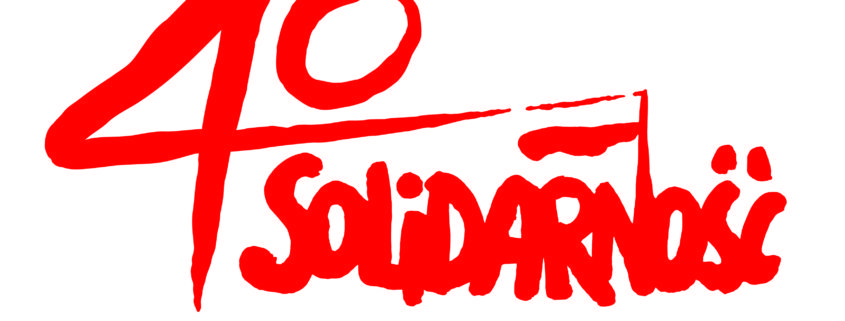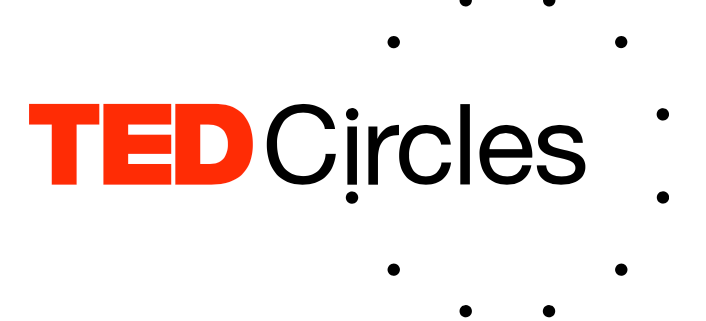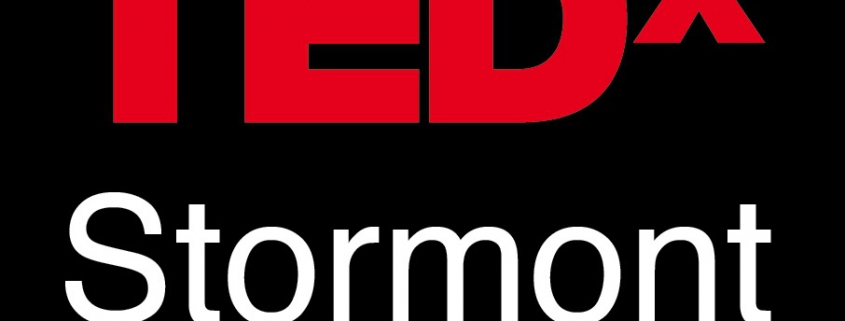Solidarity 40
To mark 40th anniversary of foundation of the Polish Independent Self-Governing Trade Union “Solidarnosc” in September 1980 we are launching Solidarity 40 – a series of lectures, seminars and publications.
Solidarity 40 will bring together academics, historians, philosophers, theologians, social activists, policy makers and legislators to explore the concept of solidarity in four thematic areas: history, international relations, theology and philosophy, and politics and society.
The first Solidarity 40 webinar will take place on Wednesday, 26 August from 3pm to 4.30pm and will include contributions from:
• Lord Alderdice (Chair)
• Professor Norman Davies FBA
• Professor Kalypso Nicolaidis, University of Oxford
• Professor Marek Cichocki, Political Theology
• Dr Donna Hicks, Harvard University
During the webinar we will reflect on the idea of solidarity in the historical, political, philosophical and social contexts.
This project is coordinated by the Centre for Democracy and Peace Building in partnership with St. Benet’s Institute, St. Benet’s Hall, University of Oxford, and a philosophical yearbook Political Theology in Warsaw and supported by the Polish Cultural Institute in London.
Register at: https://us02web.zoom.us/webinar/register/WN_KiK0Pm3tRmmivKKwOqFPEQ
TEDxStormont Virtual Summer Camp
Since 2013, TEDxStormont hosted events on the theme of “Imagine” – we were looking forward and imagining the kind of future we could have together as a society in Northern Ireland and beyond. This year the Imagine theme could not be more relevant.
The future has never felt so uncertain. There are deadly perils to be dealt with, starting with a global pandemic. Yet we also now have an opportunity to rebuild our world in a better, fairer, more beautiful way. We believe passionately that the global TED community has a key role to play here. We are all believers in human creativity and our collective ability to imagine our way out of this mess. More than ever, we need to connect with each other and figure out how to build back better.
In a run up to TEDxStormontLive on 1 August 2020, build around the talks from the first-ever virtual TED Conference, TED2020: Uncharted we will host TEDxStormont Virtual Summer Camp to bring our community closer together.
TEDxStormont Virtual Summer Camp will run from Monday, 27 July to Saturday, 1 August 2020 and will include daily Thought for the Day, Coffee Club, Main Stage TEDxStormont Talks, Creativity Hub, Peace Village, Playground and Fireside Chats.
For regular updates follow us on Twitter @TEDxStormont and visit our website www.tedxstormont.com. For further information and partnership opportunities please contact Kaja Choma at kaja@tedxstormont.com.
*TEDxStormont is organised by the Centre for Democracy and Peace Building (CDPB) and curated by CDPB CEO Eva Grosman.
Summer of Solidarity
The Centre for Democracy and Peace Building is delighted to partner with and support “Summer of Solidarity”.
This summer in Europe will be like no other. Across our contrasted continent, within our societies and also as individuals, we are experiencing something new and hard to define – a mixture of shock, trauma, uncertainty, and also of hopes, struggles, a quest for constructive paths forwards. We find ourselves in the midst of a confusing, transformative and certainly unique moment in time.
With the pandemic came pain, fear, restrictions, and fragmentation of our space. Countries were self-isolating, they turned inwards. Now, with a phased reopening of borders, new realities are dawning on us. Our continent is confronted with an economic crisis whose scale and consequences are likely to dwarf previous ones we’ve experienced. Meanwhile, struggles and debates criss-cross the region. A fight for fairness, justice and rights seems reawakened, as people claim what’s fundamental to them and also try to make sense of what their lives have become.
The virus has made evident the fragility of our societies and of our European solidarity at a state level. It has also made evident our connectedness, within our societies and across the continent, which now faces a huge test, economically, socially, politically – not least the Union within it.
Everybody seems to be waiting, gathering strength for what is to come. This summer feels like a gap, but with shifts and changes all around us. Time is suspended, and yet time is speeding up. Summer is a season where everything, much of it beautiful, can be possible. This year, one positive, beautiful thing we want to do is the simple gesture of paying more attention to each other.
We won’t be travelling much, but we c a n reach across the wide, diverse, human space of our continent in new ways. We can share and listen to each other’s stories, life experiences, memories, hopes. This is the time to explore what can bring us together and also what can drive us apart – within and across societies, cultures, countries.
Europe carries many stories within itself. Some of them are meant to pit people against one another. Some of them are cynical, fatalistic or threatening to fundamental principles of peace and tolerance. Our vision is very different – it is about believing in common values and a shared future, it is about protecting human dignity and celebrating diversity. What we want to do this summer is build a large collaborative network that connects people through vivid storytelling, that sheds light on people, places and issues in ways that help see beyond silos or thought bubbles. We’ll be keen to give a voice to people not always heard, to turn to young people, and to explore off the beaten track of news coverage. Together we’ll be sharing human stories from all across our continent: let’s try to rediscover ourselves, despite all the difficulties.
Again, we believe solidarity starts with being open and curious about one another. That’s why, as a loose collaborative network of citizens, journalists, media start-ups, civil society organizations and cultural groups from across wider Europe, we are launching the 2020 European “Summer of Solidarity” initiative.
“Summer of Solidarity” is an attempt to document a once-in-a-lifetime season and try to think about the future too. We want to create a space where we can meet, discover and debate, at a time when Europeans can’t travel and interact as before. We want to bring together a mosaic of human experiences – reaching across all sorts of boundaries, close to the ground, offering a deeper, more inclusive look at our continent.
We want to embrace Europe as a continent – a human space that is not limited to EU member countries.
“Summer of Solidarity” kicks off on 20 June and lasts until 20 August.
This is a grassroots, spontaneous initiative built in just a few weeks by a group of enthusiasts and concerned citizens from across Europe from the world of journalism, culture, citizens networks, civil society. Summer of Solidarity is independent and has no affiliation with a political party or movement, nor is it part of any institution. The initiative is supported by philanthropic grants and donations. Summer of Solidarity is an attempt to take part in the emergence of a European public space, at a time when showing empathy and listening to one another feels like the right thing to do – and to enjoy.
To learn more and to contribute please visit: https://www.summerofsolidarity.eu/want-to-contribute
One Thousand Paper Cranes launches online resources
‘One Thousand Paper Cranes’ launched its online toolkit, including a video message of peace and hope from young people in Hiroshima, story of Sadako Sasaki and instructions on how to fold the origami crane.
The project developed by the Centre for Democracy and Peace Building, supported by the Community Relations Council and endorsed by Japan House London celebrates the culture of peace and links between Northern Ireland and Japan.
The aim of the project is to make 1000 origami paper cranes with messages of lasting peace. The cranes will be offered at the Children’s Peace Monument in Hiroshima to mark the 75th anniversary of the bombing later this year.
In addition, as part of the project, Visiting Professor in Immersive Futures and diversity and inclusion specialist Deepa Mann-Kler with team from Ulster University will create Tsuru – an artistic intervention using Augmented Reality to explore peace building in digital and physical spaces of Belfast and Hiroshima.
Sir Jeffrey Donaldson MP, Chairman, Centre for Democracy and Peace Building said:
“We are delighted to be launching this project which is aimed at strengthening relations between Northern Ireland and Japan through the sharing of our respective experiences in peace building.
Drawing our inspiration from the work of the Hiroshima Peace Culture Foundation, we will be particularly encouraging young people to value the peace process and to engage in collective learning as we work towards reconciliation in our troubled and divided land.
An added benefit of the project is the study of peace through cultural exchange and exploring the richness of our cultural diversity as well as all that we have in common through our shared humanity.”
Michael Houlihan, Director General, Japan House London said:
“Japan House London is privileged to be associated with such an inspiring initiative. Culture can sometimes be the simple expression of how different societies find very different solutions to the same challenges of everyday life and living.
Sharing and understanding the experiences of others can teach us much about ourselves, and offer answers as to how we can build a more peaceful world. It is part of Japan House London’s mission to be a cultural bridge bringing the United Kingdom and Japan together.”
Watch video here: https://www.youtube.com/watch?v=W4sHJ2EWbCg
Online Resources are HERE.
TEDxStormont: TED Circles April 2020
In April, TEDxStormont will host a special online TED Circles programme themed around COVID 19, changing world and your well-being. The ZOOM webinars will take place each Monday afternoon at 4pm (BST) and will be co-hosted by Lord Alderdice and special guests. Please join in to learn, share your perspective and connect with new ideas.
TED Circles is an open platform for meaningful conversations about ideas. Imagine a book club for TED Talks! A new TED initiative, at TED Circles you will meet others who are inspired by TED and interested in joining small discussions, facilitated by our volunteer hosts, on a variety of relevant and timely topics.
Register at: https://us04web.zoom.us/meeting/register/tZEvcO6opjorP38HmqMPp9TyVSODLzeOnw
Programme
• Monday, 6 April
Emotional first aid with special guests Professor Siobhan O’Neill and Peter McBride
Watch Guy Winch: Why we all need to practice emotional first aid HERE.
• Monday, 13 April
The art of stillness with special guest Fr Mark Patrick Hederman OSB and Bridgeen Rea-Kaya
Watch Pico Iyer: The art of stillness HERE.
• Monday, 20 April
Compassion with special guest Padraig O’Tuama and Sr Judith Leckie
Watch Krista Tippett: Reconnecting with compassion HERE.
• Monday, 27 April
Gratefulness with special guest Karen Sethuraman and Rev Dr John Dunlop
Watch David Steindl-Rast: Want to be happy? Be grateful HERE.
CO-HOST Professor, the Lord Alderdice FRCPsych
Professor, the Lord Alderdice FRCPsych is a Liberal Democrat member of the House of Lords and was the Chairman of the Liberal Democrats in the House of Lords during the Liberal/Conservative Coalition Government. Previously a consultant psychiatrist at the Centre for Psychotherapy he established in Belfast, Lord Alderdice is currently a Senior Research Fellow and Director of the Centre for the Resolution of Intractable Conflict at Harris Manchester College (University of Oxford). He is also a Clinical Professor in Psychiatry at the University of Maryland (Baltimore) and Chairman Emeritus of the Centre for Democracy and Peace Building (Belfast).
TED Circle: COVID19 and the social distancing problem
Our first TED Circle webinar on COVID 19 and the social distancing problem will take place on Monday, 30 March from 3pm to 4pm (BST).
TED Circles is an open platform for meaningful conversations about ideas. Imagine a book club for TED Talks! A new TED initiative, at TED Circles you will meet others who are inspired by TED and interested in joining small discussions, facilitated by our volunteer hosts, on a variety of relevant and timely topics.
The webinar will be facilitated by the team at TEDxStormont and co-hosted by Lord Alderdice and Sinead O’Sullivan. We will discuss TED talk by Robert Waldinger: What makes a good life? Lessons from the longest study on happiness and article by Scott Atran: Coronavirus & The Social Distancing Problem.
Please join in to learn, share your perspective and connect with new ideas.
Join us live on Facebook @TEDxStormont or register HERE.
BEFORE WEBINAR
• WATCH: https://www.youtube.com/watch?v=8KkKuTCFvzI
• READ: http://cric-oxford.org/2020/03/17/coronavirus-the-social-distancing-problem/
CONTRIBUTORS
Professor, the Lord Alderdice FRCPsych
Professor, the Lord Alderdice FRCPsych is a Liberal Democrat member of the House of Lords and was the Chairman of the Liberal Democrats in the House of Lords during the Liberal/Conservative Coalition Government. Previously a consultant psychiatrist at the Centre for Psychotherapy he established in Belfast, Lord Alderdice is currently a Senior Research Fellow and Director of the Centre for the Resolution of Intractable Conflict at Harris Manchester College (University of Oxford). He is also a Clinical Professor in Psychiatry at the University of Maryland (Baltimore) and Chairman Emeritus of the Centre for Democracy and Peace Building (Belfast).
Sinead O’Sullivan
Sinead O’Sullivan is the CEO of Veriphix, a behavioural dynamics platform that detects and measures human emotion at scale. A Fellow at Harvard Law School (Center for Internet and Society) and a Senior Research Fellow at Massachusetts Institute of Technology, Sinead is also part of MIT’s COVID19 task force that seeks to implement immediate economic and governmental policies in response to the global pandemic.
An Aerospace Engineer from N.Ireland, with a Bachelor of Aerospace Engineering from Queen’s University of Belfast, a Masters in Aerospace Engineering from Georgia Institute of Technology, a Certificate of Space Engineering from the International Space University and an MBA from Harvard Business School. Her engineering experience includes human factors research at the European Space Agency, human spaceflight mission design at NASA and the Jet Propulsion Laboratory and autonomous robotics creation for the US Navy.






